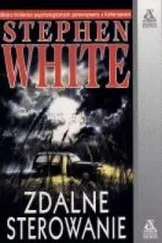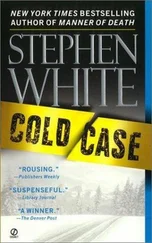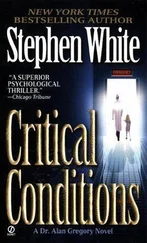Any relief I might have been feeling that my patient hadn't mentioned the discovery of an explosive device in Royal's home was simmering away in front of my eyes. Now that I knew that a bomb had indeed been stashed in the house, I needed to discuss it with Naomi, whether she brought it up or not.
I batted the issue back and forth, back and forth, as Naomi tried to numb me with tales of mood changes, body temperature regulation problems, and menstrual irregularities. At one point she said, "And don't even ask me what this has done to my sex life."
I didn't ask. Her husband was in prison. I assumed that fact alone should have greatly impeded her sex life. In my mind, Naomi and I didn't have ten minutes to waste, and I figured any expansive gripes about her sex life could easily devour ten whole sessions.
Nor did I ever decide what to do about Ramp and Paul and the wouldn't-it-be-cool games.
Just peri-menopause.
When our time was up, Naomi and I found a time to meet on the following Monday. She composed herself enough to say thank you. I was surprised to discover that I felt that her sentiment was sincere. As she stood to leave, she picked up her big bag and performed whatever sleight of hand she did to produce her pack of cigarettes, and then she started toward the door to my office.
Halfway there she paused and pivoted on one foot to face me. "By the way," she said. "Did you hear the news this morning? About that bomb?"
By the time I was ready to stammer out a reply, she was out the door.
T he neighborhood around South Dahlia Streetin Denver is an urban oasis, sequestered in relative privacy between the suburb-mimicking big-box sprawl of University Hills Shopping Center and the always-congested multilane ribbons of concrete that comprise Interstate 25, which bisects southeast Denver like a bypass scar on a cardiac patient. Unlike Washington Park, Highland, University Park, and a dozen other old Denver neighborhoods, the area hugging South Dahlia Street had somehow escaped the infectious gentrification that accompanied Colorado's recent high-tech firestorm of population growth.
The block of Vassar Lane that intersected with South Dahlia from the west was lined with modest, unrenovated houses that rested on decent lots and were shaded by mature trees. The home of Brad and Debbie Levitt was an especially nondescript blond brick ranch with a detached garage, a long driveway, and a crowded grouping of linden trees near the front door.
Debbie Levitt had just returned from dropping off her two children at school and had started to turn her four-year-old Isuzu Trooper into the driveway when she thought she felt a fierce, levitating concussion somewhere below her. She was never able to confirm her suspicions about the acceleration taking place beneath her seat because her awareness of the immense force endured for only a few milliseconds before the brain structures that Debbie Levitt needed to process such simple sensory awareness disappeared in the searing flash that blew up and out through the Trooper.
Right across Vassar Lane, Rosalyn Brae was the only witness to the aftermath of the explosion, which she saw in the rearview mirror of her two-month-old Honda Odyssey. Rosalyn had just strapped her toddler into his child seat and was preparing to back out of her garage to take him to preschool when she felt the force of the explosion as shock waves from the disintegrating Trooper rocked her car. The roar assaulted her ears, the concussion shook her bones, and she looked up at the mirror in time to see metal and plastic flying through the air, a billowing cloud of profuse smoke, and, seconds later, a wall of searing flame.
When she'd recovered from her initial shock, Rosalyn could hear her son screaming from the backseat. She hit the switch that closed her garage door before she grabbed her son from his car seat, and she ran inside to call 911.
She told the emergency dispatcher that something terrible had happened to Debbie Levitt across the street but she didn't know what. The dispatcher pressed her for details.
Rosalyn sobbed, "Her car! Her car! It, it… Oh my God!"
"What's wrong with her car, ma'am? Has there been an accident?"
"No, no, it's like-oh God-it's just gone. The noise was so loud."
"The car was stolen?"
"No, no, it's… it's still there. But there's a fire. It's on fire."
"A fire? Her car's on fire? Okay, the fire department is on its way, ma'am. Was anyone hurt in the fire?"
"I suppose, I mean, I guess she was driving the car, right? I didn't see her… but I guess she was driving. It's still burning. I can see it from where I'm standing right now."
"The fire department is on the way, ma'am. As we speak, they're on their way. Are you close to the car, ma'am? The one that's on fire? Because I would like you to step back."
Rosalyn Brae took two steps back and bumped into her kitchen table.
"Now, you think Debbie Levitt-is that her name?-was driving when the car caught on fire? I'll send the paramedics for her. But you hold on, okay? Keep talking with me, stay on the line until someone gets there."
Rosalyn Brae had a sudden insight and told the dispatcher that she knew what it was that had happened: She thought maybe her neighbor's car had been hit by a meteor.
Two days later, when the audio clips of the 911 call hit the local news, Rosalyn Brae was appropriately humiliated.
B y Friday noon,the Denver Police had a pretty good portrait of the victim of the car explosion.
Debbie Levitt was a thirty-one-year-old mother of two. She was someone who introduced herself to strangers as "a wife and mother." But the cops soon learned that, in addition to running her household, Debbie worked part time at The Bookies, a children's bookstore a few miles from her house, volunteered at the Barbara Davis Center for Childhood Diabetes at the University of Colorado Health Sciences Center, ran a Girl Scout troop, and coached her older daughter's soccer team. She also coordinated her local Neighborhood Watch program.
Almost everyone whom the police talked to commented about Debbie's size. She was "a whisper of a woman" according to one neighbor. "Four foot ten, ninety pounds, but as big as a redwood," was how the woman who owned the bookstore where she worked described her.
The thought that Debbie Levitt might have had an enemy who was angry enough to blow up her car was absolutely absurd to every single person interviewed by the Denver Police.
Debbie's husband, Brad, the manager of a retail store in Larimer Square, volunteered to allow the police to search the Levitt home and eagerly provided the family financial records to investigators. By midday police detectives had largely ruled out a drug connection or financial retribution as possible motives for the explosion.
B rad Levitt pickedup his two children about an hour before school let out that afternoon. He drove them to his parents' house on the Seventeenth Avenue Parkway in Park Hill. That's where he told the children what had happened to their mother.
S am Purdy and I hadn't had a chance to talksince I'd left him orchestrating the arrival of the emergency response team at the Peterson home that morning.
I'd called him Friday afternoon after Naomi had departed my office and left him a voice mail asking if he'd meet me after work. He called back and left a message that he'd meet me after he got home from the Avalanche playoff game in Denver, but that he had something he'd promised to do for his wife. He said he'd page me when he got back to Boulder.
W hen I lefthome around ten-fifteen and drove toward the King Soopers on Thirtieth Street, Lauren and Grace were both sound asleep.
Читать дальше












